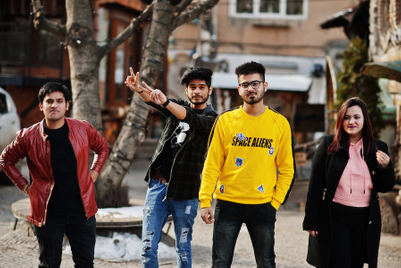.jpg&h=570&w=855&q=100&v=20250320&c=1)
When OpenAI introduced its Ghibli-style image-generation feature earlier this year, it instantly captured the internet's imagination. People began uploading their selfies and portraits, watching in delight as they were transformed into dreamy, whimsical illustrations reminiscent of Studio Ghibli’s legendary animation style. But alongside the joy and viral momentum came a serious debate around creativity, ethics, data privacy, and the future of human-made art.
Studio Ghibli, known for timeless masterpieces like Spirited Away and My Neighbor Totoro, represents more than just a visual style. It stands for human storytelling, hand-crafted artistry, and emotional depth. The idea that an AI can mimic that in seconds is both fascinating and deeply uncomfortable for many. Hayao Miyazaki, Ghibli’s co-founder, has long voiced his disapproval of AI in art, calling it 'an insult to life itself'. His son, Goro Miyazaki, also recently commented that AI might create entire films soon, but it could never replicate the humanity his father brings to animation.
Over 70 crore images were generated globally within weeks using AI, with India leading the surge, according to OpenAI. This statistic is revealing not just for the number, but for what it says about India's digital behaviour. Indian consumers have a strong tendency to adopt and popularise visual trends. There is an openness to experimentation, a collective culture that embraces virality, and a deep cultural connection with fantasy and storytelling.
Another reason India stood out in this trend is its evolving understanding of data privacy. Unlike Europe or the US, where data protection laws like GDPR and CCPA are well-established and public awareness is high, India is just beginning to implement its Digital Personal Data Protection (DPDP) Act. As a result, many users may not have considered the implications of uploading personal photos for AI training. Legal and privacy experts have also noted that trends like these give companies like OpenAI access to high-quality facial data, including selfies and family photos that people often don’t share publicly.
This raises pressing ethical questions. Should AI companies be allowed to train on the styles of legendary artists without their consent? What does ownership mean in an age where an algorithm can mimic the aesthetics of Ghibli or Van Gogh? While OpenAI CEO Sam Altman has acknowledged the need to ensure artists benefit from AI, the legal landscape remains vague. Artistic styles aren’t easily protected under copyright, leaving creators exposed in this grey zone.
It is not about copyright alone; it is also about cultural integrity and the value of human expression. AI can generate a beautiful image, but it cannot replicate the lived experiences, emotions, and philosophies that inform an artist's vision. What makes Ghibli so cherished is not just its art, but its soul. That’s something AI, no matter how powerful, has yet to understand.
From my perspective, as someone working closely with creativity and digital trends, this isn’t an anti-tech stance. There is immense potential in using AI to empower creators, democratise design, and enhance storytelling. But it must be done ethically, with transparency, consent, and fairness.
We need clearer frameworks, both legal and moral. AI-generated content must be clearly labeled. Artists whose styles are being replicated deserve both credit and compensation. And users should be educated on how their data is being used. If we get that balance right, we could usher in a new era of collaboration between humans and machines, where technology supports, rather than replaces, the artist.
The OpenAI Ghibli trend was beautiful, fun, and undeniably viral. But it also revealed the deeper cracks in how we think about art, ownership, and ethics in the AI era. As we create the future, we must not forget to protect the heart of what makes it worth creating in the first place.

—Hemal Majithia, founder and chief oktomind, Oktobuzz.



.jpg&h=334&w=500&q=100&v=20250320&c=1)
+(900+x+600+px).jpg&h=334&w=500&q=100&v=20250320&c=1)

+(900+x+600+px)+(3).png&h=334&w=500&q=100&v=20250320&c=1)

.jpg&h=334&w=500&q=100&v=20250320&c=1)



.jpg&h=268&w=401&q=100&v=20250320&c=1)
.jpg&h=268&w=401&q=100&v=20250320&c=1)



.jpg&h=268&w=401&q=100&v=20250320&c=1)


